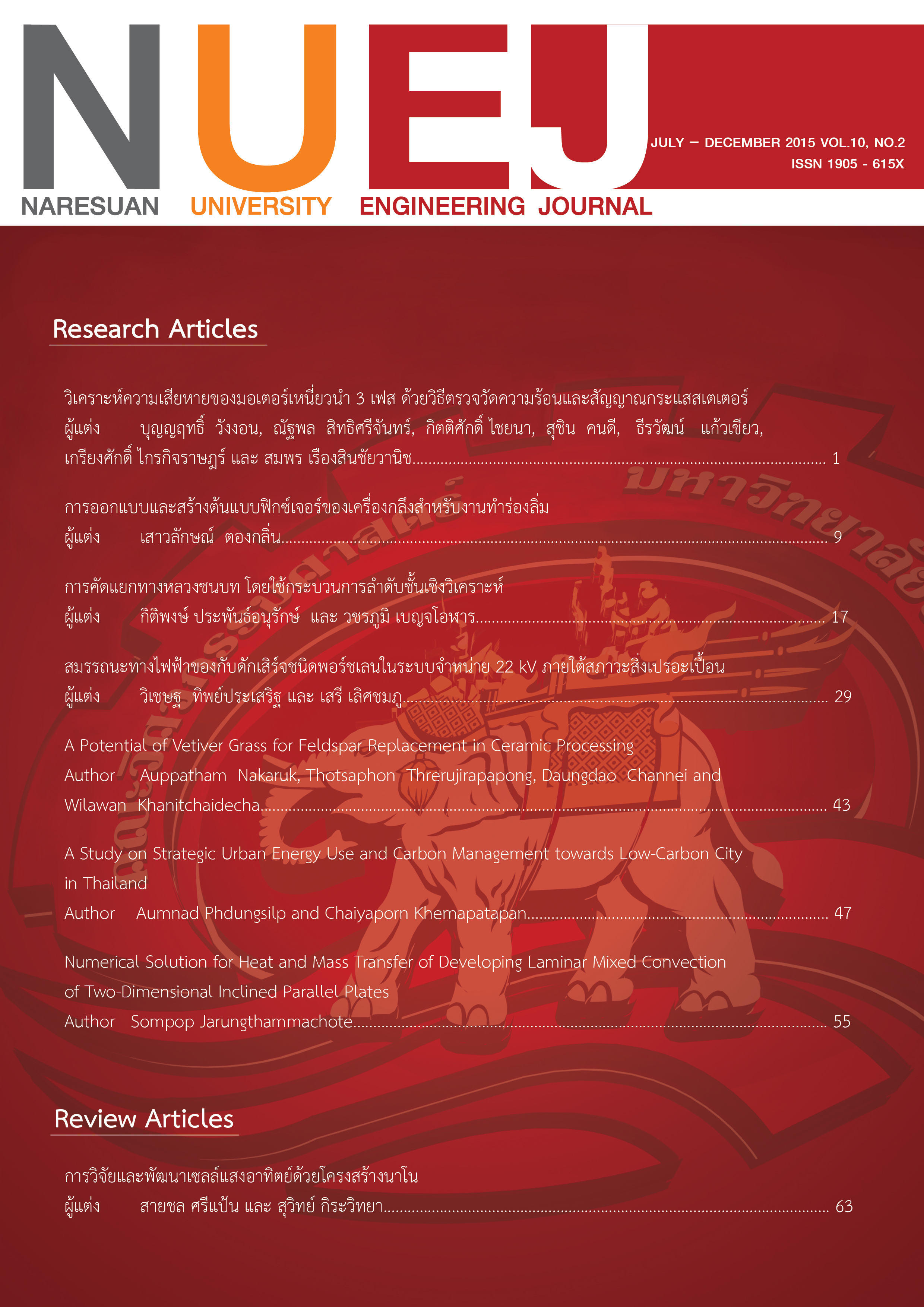A Study on Strategic Urban Energy Use and Carbon Management towards Low-Carbon City in Thailand
Main Article Content
Abstract
The energy provision and utilization has not been a strategic priority for urban authorities. Urban areas are centers of growth, production and consumption. They represent potential pathways to achieve a low-carbon society. This paper presents the development of a strategic energy and carbon management in urban areas in Thailand. The objective of this study is to analyze strategic urban energy use and carbon management while satisfying required demands. Future energy demand and energy-related CO2 emissions are calculated using the Long-range Energy Alternatives Planning (LEAP) system based on end-use scenario methodology with taking into consideration of two scenarios. The business as usual scenario assumes that no specific measures will be applied to influence the trends of urban energy demand. The countermeasures scenario is generated to assess the effects of policy measures for energy savings and CO2 emission reductions. The energy use, energy-related CO2 emissions and potential for energy-savings and emission reductions are estimated for a planning horizon of 2009–2020, with 2008 used as the base year. The findings indicated that the transport sector has the largest abatement potential. The cleaner technology measure is the most effective in terms of energy-savings and CO2 emission reductions. In addition, GIS is also implemented for local governments to achieve the contribution of information.


